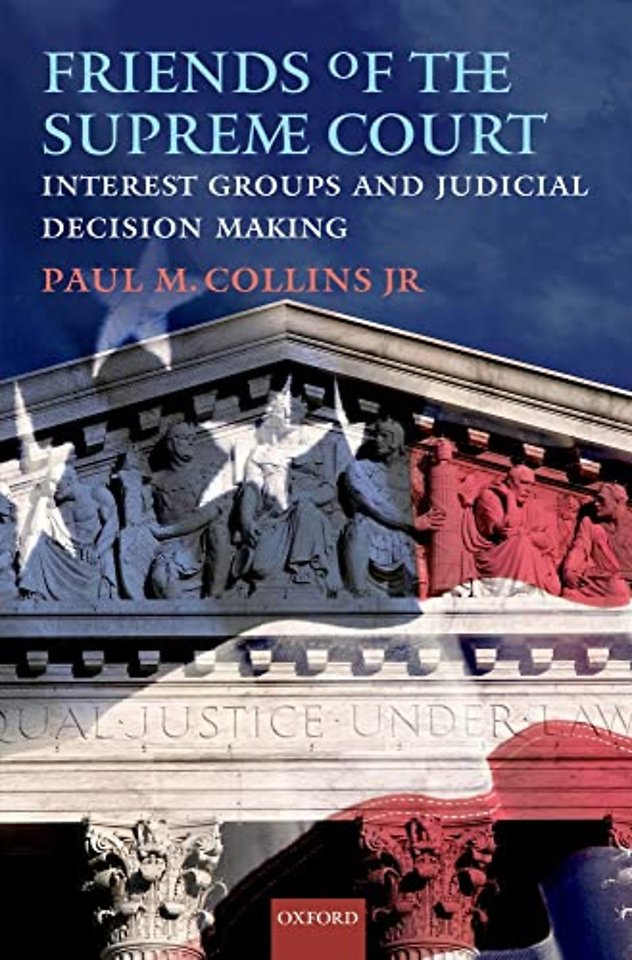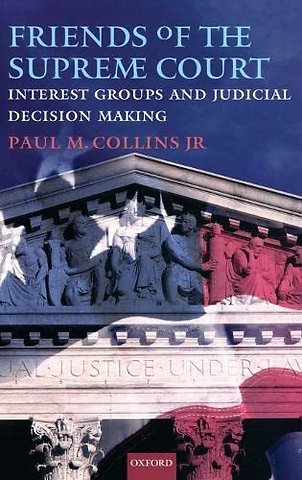Friends of the Supreme Court: Interest Groups and Judicial Decision Making
Samenvatting
The U.S. Supreme Court is a public policy battleground in which organized interests attempt to etch their economic, legal, and political preferences into law through the filing of amicus curiae ("friend of the court") briefs. In Friends of the Supreme Court: Interest Groups and Judicial Decision Making, Paul M. Collins, Jr. explores how organized interests influence the justices' decision making, including how the justices vote and whether they choose to author concurrences and dissents. Collins presents theories of judicial choice derived from disciplines as diverse as law, marketing, political science, and social psychology. This theoretically rich and empirically rigorous treatment of decision-making on the nation's highest court, which represents the most comprehensive examination ever undertaken of the influence of U.S. Supreme Court amicus briefs, provides clear evidence that interest groups play a significant role in shaping the justices' choices.
Specificaties
Net verschenen
Rubrieken
- aanbestedingsrecht
- aansprakelijkheids- en verzekeringsrecht
- accountancy
- algemeen juridisch
- arbeidsrecht
- bank- en effectenrecht
- bestuursrecht
- bouwrecht
- burgerlijk recht en procesrecht
- europees-internationaal recht
- fiscaal recht
- gezondheidsrecht
- insolventierecht
- intellectuele eigendom en ict-recht
- management
- mens en maatschappij
- milieu- en omgevingsrecht
- notarieel recht
- ondernemingsrecht
- pensioenrecht
- personen- en familierecht
- sociale zekerheidsrecht
- staatsrecht
- strafrecht en criminologie
- vastgoed- en huurrecht
- vreemdelingenrecht

